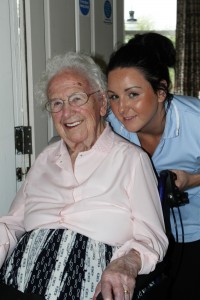 From today, councils will no longer have the right to set their own criteria when it comes to eligibility for funding for care. It’s one of three major changes to the care system for older people and adults with disabilities. In future the Government will set eligibility criteria for people applying for funding. This could have a big impact on Councils who say their social care budget is stretched to its limits. Already one Council leader has said, ‘Councils simply cannot afford any more financial burdens when social care services are already chronically underfunded.’[i]
From today, councils will no longer have the right to set their own criteria when it comes to eligibility for funding for care. It’s one of three major changes to the care system for older people and adults with disabilities. In future the Government will set eligibility criteria for people applying for funding. This could have a big impact on Councils who say their social care budget is stretched to its limits. Already one Council leader has said, ‘Councils simply cannot afford any more financial burdens when social care services are already chronically underfunded.’[i]
The other major change is that caregivers will have the same right to assessment and support as the people they care for; whereas previously, they had to provide ‘substantial care on a regular basis’ to get an assessment, and councils will be obliged to make loans available to pay for residential care to people who need it, which is then paid back from their estate after death.
The Care 2014 Act follows David Cameron’s[ii] statement in February that all people looking after dementia patients will be offered the opportunity take time off, education, training as well as professional psychological help. He said that more than half-a-million carers of people with dementia will be offered respite and ‘emotional and psychological support’ under Government plans to ensure they can ‘have a life alongside’ looking after their loved ones.
It follows on a report by the Alzheimer’s Society which highlighted the lack of home care for patients with dementia. Many were ‘being condemned to needlessly long stays in hospital because of a shortage of care to help them at home,’ it warned. The report showed that last year, dementia sufferers spent more than 3 million days in hospital – with average stay in some hospitals three times as long as in others.
Alzheimer’s Society’s Chief Executive, Jeremy Hughes, said, “The human and financial cost of this broken system is staggering. We cannot continue to fail the most vulnerable in society in this way.’[iii]
The President of the Association of Directors of Adult Social Services, David Pearson, says the 2014 Care Act changes are “probably the most significant development” since 1948. But he still has concerns about the underfunding of the system. He should know. Last July he said that that while social services chiefs have gone to greater and greater lengths to ‘make the public purse stretch’ there were ‘now serious questions about whether safety and quality standards are under threat.’ Also, Age UK has reported that 900,000 older people are facing ‘catastrophe’ because they could not obtain help.
So is the Care Act 2014 merely plastering over the cracks?
[i] http://www.bbc.co.uk/news/health-32136209
[ii] http://www.telegraph.co.uk/news/11430731/Dementia-carers-to-be-offered-respite-and-psychological-support.html
[iii] http://www.telegraph.co.uk/news/health/elder/11502563/Dementia-patients-stay-in-hospital-because-of-home-help-care-shortage.html[iii]














